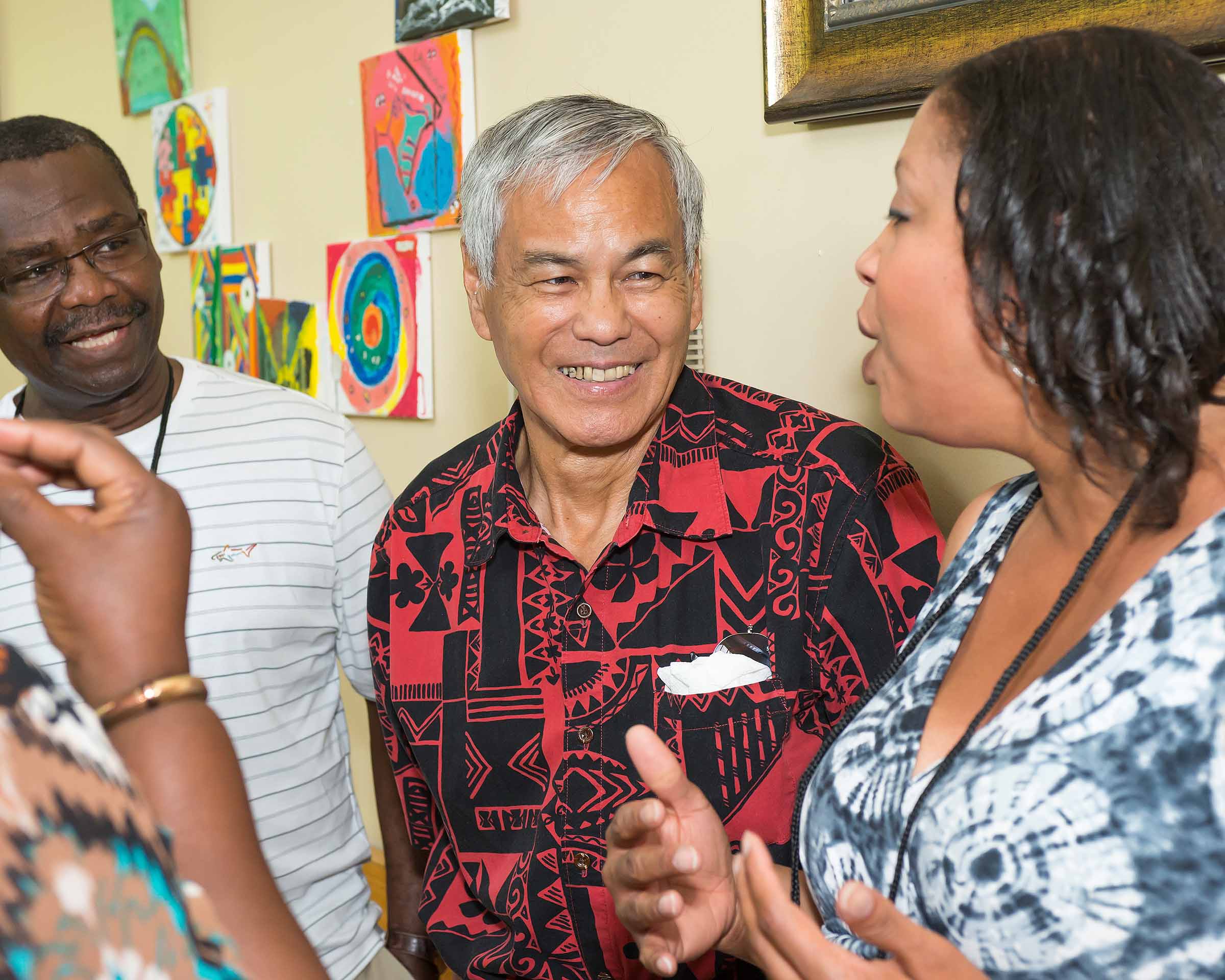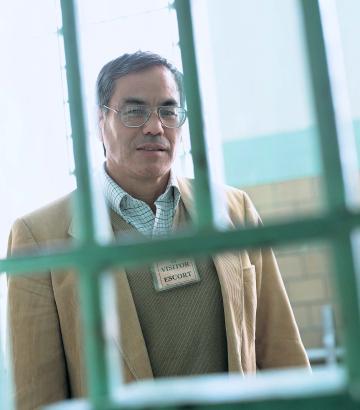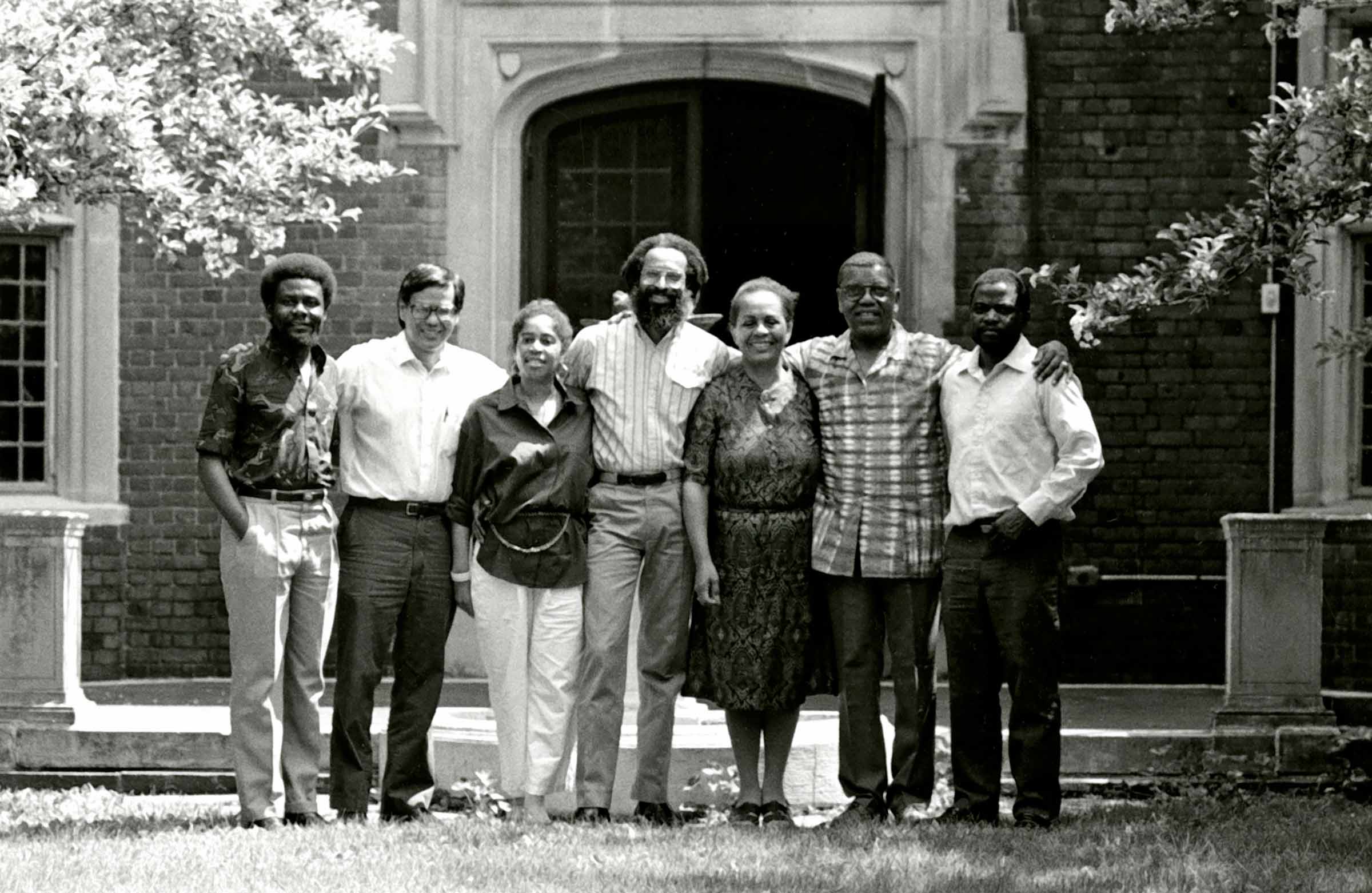Award Named for Late Professor and Community Organizer Larry Mamiya
Throughout its history, Vassar has had dozens, perhaps hundreds, of professors who were revered not only for their scholarship and work in the classroom but for the values they professed and the relationships they fostered with their students and those in the surrounding community.
Those who had the privilege of knowing and learning from the late Professor of Religion and Africana Studies Lawrence H. Mamiya put him at the top of this stellar list. His life-work demonstrated the necessary intersections between academic study and making the world a better place.
Mamiya, who had been an activist and a community organizer, taught at Vassar for more than 35 years and was the guiding spirit behind the College’s landmark prison education program, which brought students and incarcerated men from nearby correctional facilities together to learn from one another. He died January 8, 2019.
Starting this year, the American Academy of Religion (AAR), the largest scholarly society dedicated to the academic study of religion, honors Mamiya, his example, and his legacy with the presentation of The Lawrence H. Mamiya Excellence in Public Service Award. It will be given to an Academy member “who has demonstrated a commitment to research and activism that betters the world at large.”
One of Mamiya’s former students, Academy board member and Vanderbilt University Professor of Ethics Stacey Floyd-Thomas ’91, said no one was more deserving of being remembered through such an award. “Prof. Mamiya was my mentor and my advisor at Vassar, and I was involved in his prison program,” Floyd-Thomas said. “One of our missions at the Academy is to recognize the lives of some of the giants in religious studies, and it is for that reason that the Academy sought to establish this award in honor of a giant whose shoulders have carried so many in the effort to elevate our society to its higher ideals. Our gift in contributing to this award does not simply endow a legacy but it makes our legacy endure for many more generations.”
AAR Executive Director Alice Hunt said the award is an appropriate tribute to Mamiya’s life and work. “Lawrence Mamiya’s life and work establish an extraordinary paradigm for bringing learning to life,” Hunt said. “This award allows us to provide our members with an outstanding example of what it means to study religion and to put that work into practice. I’m thrilled to be working to endow this important award.”
The first Lawrence H. Mamiya award will be presented at the AAR’s annual convention next November.
In remarks given during a memorial service for Mamiya in October 2019, Floyd-Thomas recalled the first day she met her soon-to-be mentor. A first-year Black student who had grown up in predominantly white communities, Floyd-Thomas found herself surrounded by about 20 other Black students in a course Mamiya was teaching called The Sociology of the Black Community.
“You can just imagine my surprise,” Floyd-Thomas recalled, “when this man, former student of the father of Black Liberation theology, Dr. James Cone, former professor of the legendary HBCU Fisk University, scholar of the Black Church, turned out to be a Japanese man from Hawaii. The work I do is today at Vanderbilt University, some 10 miles from where Larry Mamiya started his own professional career at Fisk University, is because an Asian man with a beautiful African name stood with Black students when many Black professors would not.”
Three of Mamiya’s former colleagues, Professor of Religion Jonathon Kahn, Associate Professor of English and Director of Africana Studies Tyrone Simpson, and Professor Emeritus of Sociology Eileen Leonard said the establishment of the award was an appropriate tribute to his legacy.
“Whenever I think of Larry,” Kahn said. “I think of a single biblical passage, one that has a prominent place in the tradition of African American readings of the Bible. It is Psalm 68:31: ‘Princes shall come out of Egypt; Ethiopia shall soon stretch out her hands unto God.’ I think of Larry as such a prince, a prince who worked tirelessly—driving his van with his students toward the lives of those who were incarcerated in search of justice. Larry contained multitudes: the prophetic, the quiet steel of determination, the gentle softness of love and care, and the intellectual majesty of a scholarly giant. Larry was a prince that stretched his arms out to all of us. May we continue in this life to stretch out our arms to who he was.”
Simpson agreed. “It is a wonderful tribute to Professor Mamiya whose lifetime achievements in scholarship and teaching were matched by his humanitarian work in civil rights, broadly defined,” he said. “His decades-long support of incarcerated men was life-saving and life-giving. We were fortunate at Vassar to have his example of justice work right in front of us. This new award will ensure that others know and expand upon the amazing things that he accomplished."
Leonard, who taught classes at the Taconic Correctional Facility for Women after Mamiya established the Vassar prison program, said many students involved in the program had told her the experience had changed their lives. “Larry was an integral part of the process of getting Vassar’s approval to allow the women at Taconic as well as Vassar students to receive Vassar academic credit for their coursework, and to allow faculty to count this course as part of their teaching load,” Leonard said. “He was there to speak with the superintendent at Taconic, Dolores Thornton, to gain support for this endeavor, and he went with us to Albany to speak with Commissioner of NYS Department of Corrections Brian Fischer. As a result of these efforts, Vassar has been teaching courses at Taconic Correctional Facility for about 12 years now, and the program continues due in large measure to Larry’s inspirational example and hard work.
“Larry was a quiet person, but he was certainly not aloof or distant,” Leonard continued. “He exuded a warmth and compassion that was palpable. Perhaps it was his wonderful smile, or the firm handshake, or the friendly hug. One consistent facet of Larry’s comportment might be termed ‘radical equality.’ Whether he was speaking with the superintendent at Taconic, incarcerated men at Greenhaven, Vassar students, or the Commissioner of the NYS Department of Corrections, Larry never spoke up to anyone, and he never spoke down to them. He treated everyone as an equal, with dignity and respect.”
For more information on the endowed award, visit AAR’s website.


